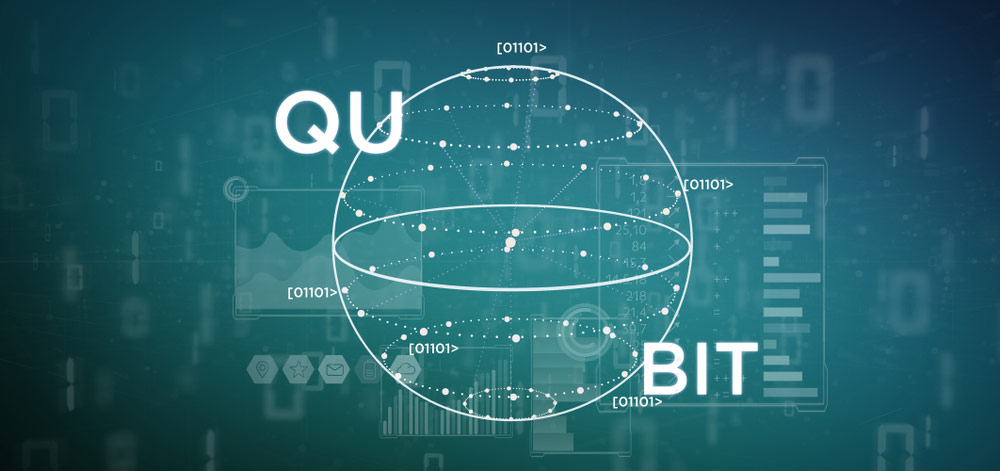
Quantum computing uses the properties of the quantum states to perform calculations. A quantum computer uses the quantum states of the subatomic particles to store information. Instead of using transistors, which can only signify 1 or 0 at one time, quantum computers use qubits which can represent 1 and 0 simultaneously. Thus, it differs from binary digital electronic computers.

Quantum Computing: Advantages
Many particles interact in quantum mechanics, which requires a quantum computer to process this complex information about how these particles interact. The regular or classic computer cannot process this information using ordinary language. The quantum computer can solve computational problems like integer factorization comparatively faster than traditional computers.
Quantum computing is based on the use of a quantum bit or qubit. A qubit can be in a 1 or 0 quantum state or a superposition of the 1 and 0 states. It is stated that a quantum computer can also solve any computational problem that a classical computer can solve. Quantum Computers can solve specific problems faster than a classic computer and earn for themselves a position of supremacy.

Future Applications of Quantum Computing
Quantum Computers offers advantageous application in diverse fields. Its potential is extremely high in the following fields:
- Advanced Research – An actual application of quantum computers will be to research how matter behaves, the discovery of materials and chemistry. It will require tremendous engineering and fitting in information to understand inherent concepts.
- Cryptography – An application of quantum computers is Integer Factorization used for public cryptographic systems. It can solve the problem more efficiently. Quantum Cryptography can prove more secure than the classic systems in quantum hacking.
- Search Problems – Quantum computers can simplify search problems. It uses the square roots of the number of inputs (elements in a database) compared to the linear scaling system of classic computers. It may be effectively used to crack passwords.
- Simulation of Quantum Systems – It may be one of the essential applications of quantum computers, primarily since chemistry and nanotechnology rely on understanding quantum systems. In chemistry, the behaviour of atoms, collision during a reaction, and to predict future paths of particles and protons under superposition; can be understood well. Quantum simulations may be used to understand the nitrogen fixation process for ammonia production in the agricultural fertilizer industry.
- Drug Design and Generative Chemistry – Generative chemistry models are tools to discover or design drugs. Quantum computers may facilitate understanding the structural space of the drug design molecules. The architecture of novel drug-like molecules may be possible with quantum computers, especially in Tailor-made and Genomic Medicines, over Traditional Medicines.
- Machine Learning – Due to its ability to be fundamentally linear algebraic and produce outputs less quickly, Quantum computers will speed up Machine Learning tasks.
- Computational Biology – Quantum computers can play a crucial role in Computational Genomics and drastically lessen the time to sequence a human genome. Generic data modelling and storage is the way of the future.
- Quantum Annealing and Adiabatic Optimization – It means the system stays in the ground state as the evolution is too slow. Quantum computers may assist in finding the Quantum Annealing or the global minimum of a given objective function; and thus, aid in solutions to problems.

Moving Forward
Having used machines with only five qubits a few years ago, and now a vision to build a device with 1000 qubits by 2023, the future of Quantum Computers is certain. Innovation and evolution both in hardware and software in Quantum Computers will be a curtain-raiser in the field of Computing.
Inculcating Curiosity in the Next Generation of Engineers
The NAAC-accredited and MAKAUT-affiliated OmDayal Group of Institutions is responsible for churning out skilled engineers with a zeal for creativity and innovation. As the leading engineering college in West Bengal, the industry-centric engineering courses offered by us include:
- Civil Engineering
- Electrical Engineering
- Mechanical Engineering
- Computer Science and Engineering
The ever-changing technological landscape required for engineering jobs both in India and abroad has inspired us to continuously upgrade our teaching and learning methodology in sync with global standards. We empower each and every student with the competitive edge and required skills to perform confidently in the new-age technology domain. Our industry-oriented facilities include flexible timings and partnership with National Small Industries Corporation (NSIC) for on-job training and placement opportunities.
For more information, visit https://omdayal.com.




